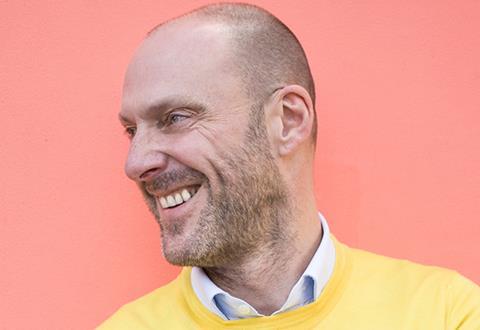If we compromise on our trustworthiness, we risk losing respect and business, writes Martyn Evans

UK politics, like our property industry, runs in cycles. In the last few decades it seems to have run in 20-year(ish) blocks: a visionary leader offers a new way of thinking, sweeps the exhausted incumbent out and then, two decades later the pattern repeats.
In 1979 Margaret Thatcher cleared out the tired, bankrupt Labour Government. In 1997 Tony Blair offered a “new dawn” in place of the sleaze-ridden, euro-fighting Major administration. Cameron offered the same in 2010 and at the next election we’ll be 14 years on, facing what feels like a similar situation.
The difference between politics and our industry, though, is that in the private sector there’s no opportunity to use the useful salutary lesson of a lost election to whip ourselves back into shape ready for the next battle. If we let our constituents (cusomters) down, we’re in danger of them voting with their chequebooks with permanent effect.
Right now, what might do for our government can be described in one word. Honour. Or the lack of it. Every allegation of bad behaviour levelled at Cameron (lobbying), Cummings (covid rule-breaking), Zahawi (tax investigations), Pincher & Patterson (rule-breaking), Sharp (jobs for the boys), Raab (bullying), Sunak (sweeping it all under the carpet) and Johnson (I’ve only got 800 words) has been met with nitpicking about whether rules were actually broken.
They argue that the transgressions were not that serious, especially when they were working so hard to save us from a pandemic, or they just plain deny that anything untoward happened at all. Nothing to see here, move along.
…two of the most important tools in our toolkit are expertise and our reputation
Of course what all that bluster ignores is the consequent slow and inevitable chipping away at these politicians’, the government’s and, by extension, our country’s reputations. Did Johnson really imagine that all the trouble surrounding him, whether he survived investigations by the skin of his teeth or not, would have no impact on his ability to represent our country with honour?
I’ve sat on two panels in the last ten days discussing the part trust plays in our industry. It’s high up the agenda in this post-pandemic, post-Brexit, economically-challenged world because we are all having to do a lot of soul searching about how we can protect our economy.
At a time when there is little certainty in our business, two of the most important tools in our toolkit are expertise and our reputation. This is no time to be putting either of them at risk.
When times are good in our industry, demand typically outstrips supply – both in private housing and in commercial property – and it’s easy to become complacent. Why try hard when everything we build sells? In tough times we re-trench, batten down the hatches and cut costs with a knock-on impact on quality.
Why would we talk about doing only the bare minimum of what’s asked of us…?
This flip-flopping is the equivalent of slippery politicians arguing it’s OK to slide along the very edge of the rules just so long as you or your clever and expensive lawyer can prove you didn’t technically put a toe over the line. Remember Cameron’s arguments when he was caught lobbying for that investor friend?
I don’t think it matters whether he technically broke any rules. What matters is that he put himself in that situation in the first place, opening up the perception that he swapped honour for greed - so wrapped up in his own world that he couldn’t see the risk to his own reputation. So it is with our industry.
Why would we talk about doing only the bare minimum of what’s asked of us in terms of public consultation on a planning application, for instance, when those guildelines are really there to encourage proper engagement with communities to find out what they really want? And what about long-term commitment to our customers?
Some of our less scrupulous volume housebuilders may well think it’s OK to run for the hills as soon as keys are handed over to a buyer, invisible in a cloud of dust when the snagging needs to be done. But how does that play out in the longer term when they might really need the trust and support of homebuyers in more difficult times?
That might be how it rolls when times are tough, but is that really how we want our industry to be seen?
One of the only ways anything of significance is going to get developed in our rundown town and city centres is through public-private partnership. You could characterise that as under-resourced local authorities having to go cap in hand to private developers and their investment funds, offering their land up just to be able to get anything done.
That might be how it rolls when times are tough, but is that really how we want our industry to be seen? Isn’t it so much better to see that kind of partnership as an investment in the longer-term, with those relationships built on trust and mutual respect?
And then there are the relationships within our own industries. How can we expect to work together well as developers, architects, engineers, planners and cost consultants over the longer-term when those paying the bills wax and wane with a short-term view on the economy and its impact on contracts and fees?
I’ve lost count of the conversations I’ve had with architects recently with dozen-strong teams put on immediate ice because their client’s scheme is on a go-slow. Of course, it’s tough when economic conditions are so unpredictable but without trust, when times are good again, something is lost.
Postscript
Martyn Evans is creative director of U&I
















1 Readers' comment